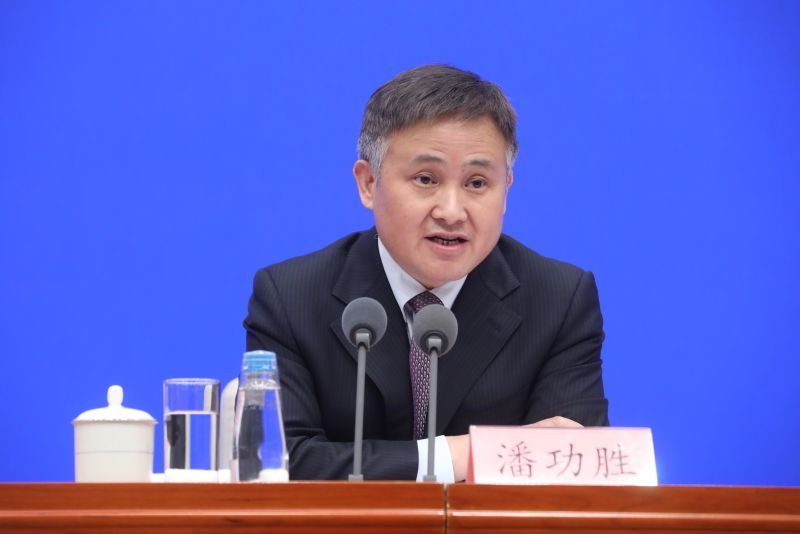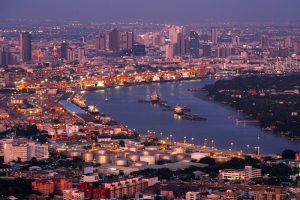The selection of Pan Gongsheng to a top political post at China’s central bank points to growing concern over systemic risks in its sprawling financial sector, insiders and analysts say.
Pan is a financial technocrat and was the foreign exchange regulator who came to prominence fighting capital outflows.
The central bank did not responded to a request for comment, but sources have said that Pan will be in position to take over the top job at the People’s Bank of China (PBOC) when Governor Yi Gang steps down.
Pan – a central bank deputy governor since 2012 who turns 60 this month – is not expected to deviate from China’s measured pace of policy easing to support the recovery, analysts said.
He has forged a reputation as a risk averse central banker, playing a key role in enforcing several crackdowns on perceived financial threats in the past decade.
ALSO SEE:
China Bid to Stop Yuan Slide: Dollar Deposit Rates Slashed
Tough stance on speculators, bank reforms, crypto
Pan’s appointment comes as China tries to ward off major challenges to its financial stability from about $9 trillion of local government debt and a downturn in the property sector, which accounts for roughly a quarter of economic activity.
“He will be able to implement key financial policies from the top to cope with economic uncertainties,” said a source involved in policy discussions, who preferred not to be identified due to the sensitivity of the matter.
“His professional ability will help safeguard the bottom line of systemic financial risks, especially as the property sector is slowing, and fend off a big systemic crisis.”
In 2016, Pan also took on the role of China’s top foreign exchange regulator, managing the world’s largest foreign exchange reserves of around $3.2 trillion.
He is known for taking a tough stance against currency speculators and was also involved in state banking reforms, tightening property market and fintech regulations, and in banning cryptocurrencies.
In a speech in late May, Pan spoke at length about preventing and resolving financial risks as an “eternal theme,” calling for better coordination between regulators in the context of a “complex and ever-changing external environment.”
It is not immediately clear how Pan will look to make an impact, but PBOC watchers expect him to steer policy to support the economy, even as the central bank has limited room to manoeuvre, and use its macro-prudential rules to curb risks.
“Pan’s appointment will help maintain policy continuity and stability, as we face pressures internally and externally,” Gu Tianyong, an influential economist at the Central University of Finance and Economics in Beijing, said.
Central Financial Commission to oversee PBOC, regulators
In an unexpected move, the ruling Communist Party appointed Pan as the central bank’s party secretary on Saturday, taking over from Guo Shuqing. The Wall Street Journal, citing people familiar with the matter, said the move was a prelude to replacing Yi.
Yi’s predecessor Zhou Xiaochuan also held the governor and party secretary roles simultaneously.
If confirmed, Pan, who did post-doctoral research at Cambridge University and was a senior research fellow at Harvard University, will have a consolidated position of power, albeit in an institution reporting into new regulators.
China has taken a series of steps this year to tighten party control over the country’s vast, but largely closed, financial system, including plans to set up the Central Financial Commission to oversee the PBOC and other financial regulators.
Zhou and Yi introduced pro-market reforms during their mandates, but the new structure limits PBOC’s policymaking abilities and fits better with Pan’s focus on risks, analysts said.
Huge debt burden
The world’s second-largest economy, under an overall debt burden of three times its output, is struggling to gain momentum due to waning external demand and its failure to lift household consumption, a long-standing weak spot.
But on monetary policy, risk-wary Pan is seen likely to support the current path of measured easing steps.
“We need to consider how to stimulate the economy, but we should first make sure risks are under control,” a second policy insider said.
The PBOC cut its benchmark interest rates for the first time in 10 months in June by a modest 10 basis points, and further easing measures in coming months are expected to be similarly restrained, especially as credit demand remains subdued.
“The room for monetary policy easing is limited and the effectiveness faces many constraints,” Xu Hongcai, deputy director of the economic policy commission at the state-backed China Association of Policy Science, said.
Guo Shuqing removed as deputy governor
Meanwhile, in related news, China’s cabinet has removed Guo Shuqing from his post as the deputy governor of the People’s Bank of China, a statement by the human resources ministry said on Tuesday.
The move came amid the central bank’s leadership reshuffle, including the appointment of Pan on Saturday.
- Reuters with additional editing by Jim Pollard
NOTE: Further details were added to this report (on Guo Shuqing) on Tuesday July 4, 2023.
ALSO SEE:
China’s Property Sector Will Remain Weak For Years: Goldman
China Retains Central Bank Chief in Surprise For Markets
























